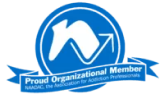In today’s digital landscape, a solid online presence is crucial for counselors and therapists treating mental health or addiction. It’s not just about having a professional website but ensuring it’s discoverable and easy to use by those seeking your services. This is where search engine optimization, or SEO, becomes vital.
SEO for therapists and counselors is the process of boosting your website to the #1 organic search result. It’s about optimizing your site so search engines can understand and rank it higher for relevant keywords, such as “drug counseling services,” “therapists near me,” or “online therapy sessions.” The importance of SEO for therapists lies in its ability to increase your online visibility. The higher your site ranks in Google or Bing the more likely potential clients will click on your link and land on your website. In a field where making services easily accessible can make a significant difference, SEO is a tool you can’t overlook.
This guide will provide an in-depth look at SEO for therapists and counselors. We’ll cover the role of keywords, guide you through practical keyword research and keyword usage strategies, discuss on-page and off-page SEO, delve into technical SEO aspects, and show you how to measure your SEO success.
Whether you’re a seasoned professional or a newcomer, this guide will help you navigate SEO, improve your online visibility, and ultimately, reach more clients who need your services. Let’s go!

Understanding SEO for Therapists and Counselors
Search engine optimization, or SEO, is a digital marketing strategy that aims to improve a website’s visibility on SERPs. It involves techniques and best practices to make a website more attractive to search engines like Google, Bing, and Yahoo. The goal is to have your website appear as high as possible on the search engine results page when someone types in relevant keywords or phrases.
For mental health counselors and therapists, these keywords might include terms like “anxiety counseling,” “marriage therapy private practice online,” “dual diagnosis treatment,” or “mental health and addiction services.” When your website is optimized for these terms, it’s more likely to appear in the search results when potential clients use these keywords in their online searches.
But why is SEO for drug rehab counselors and therapists so important? The primary reason is visibility. In today’s digital age, people turn to search engines for information, services, or products, and it is no different when seeking mental health professionals and services.
By optimizing your website for search engines, you’re increasing the likelihood that potential clients will find your services when they’re searching online. This is particularly important in the field of therapy and counseling, where accessibility and visibility can significantly impact the number of people you’re able to reach and assist.
A well-optimized website helps attract more visitors and contributes to a better user experience. SEO encourages the creation of user-friendly websites and web pages that are easy to navigate, have clear and relevant content, and load quickly. These factors can help engage visitors, keep them on your site longer, and ultimately increase their likelihood of reaching out for your services.
In the following sections, we’ll dive deeper into the various aspects of SEO, providing practical strategies and tips to help you optimize your website, increase your online visibility, and connect with more clients seeking your services.
The Role of Keywords in SEO for Counseling
Keywords play a pivotal role in SEO. They are the terms and phrases that potential clients type into search engines when looking for services like yours. By understanding Google trends in search and strategically using the right keywords, you can optimize local keywords on your business listing or website to rank higher in search engine results, making it easier for potential clients to find you.
For counselors and therapists, identifying the right keywords involves understanding your clients and the terms they might use when seeking therapy or counseling services. These could be general terms like “therapy” or “counseling.” Still, they could also identify keywords that be more specific, such as “cognitive behavioral therapy for addiction,” “family counseling,” or “anxiety therapy.”
Once you’ve identified relevant keywords, the next step is to incorporate them into your website. You don’t want to stuff your content, title tag and meta description with these terms. Instead, it involves strategically placing them in your website’s content, meta descriptions, title tag, tags, URLs, google maps, and even images in a natural way that provides value to your visitors.
But keywords aren’t just about making your website more attractive to search engines. They’re also about connecting with your potential clients. Using your clients’ terms and phrases in website content means speaking their language and showing you understand their needs, which can build trust and encourage them to reach out.
Implementing SEO Strategies for Therapists
Effective strategies are vital in enhancing online visibility and reaching more potential clients. While SEO can seem complex, breaking it down into manageable steps can make the process more approachable. Here’s a step-by-step guide on implementing SEO strategies for rehab therapists.

Step 1: Keyword Research
Keyword research is the foundation of any successful SEO strategy. It involves identifying the terms and phrases that potential clients use when searching for online therapy and mental health services. Start your keyword research by brainstorming a list of terms related to your services, such as “counseling,” “therapy,” “counseling services,” or “online therapy sessions.”
Next, use SEO tools like Google’s Keyword Planner or SEMrush to expand this list and find related keywords. These keyword research tools can also provide valuable data on each keyword, such as search volume (how often the keyword is searched for) and competition (how many other websites also target this keyword).
Remember, the goal isn’t just to find the most popular keywords in Google search results but to find the keywords most relevant to your services and potential clients. You want to focus your keyword research process on long-tail keywords (longer, more specific phrases) with lower search volumes but are less competitive and more targeted. Your keyword strategy should include a range of keywords related to your services, including short-tail transactional terms and long-tail keywords that ask questions your audience needs to be answered.
Step 2: On-Page Optimization
On-page optimization involves naturally incorporating your target keywords into your website, providing value to your visitors. This includes placing keywords in your titles, headers, body content, URLs, title tags, and meta descriptions.
However, it’s essential to avoid “keyword stuffing” or overusing your keywords to manipulate your site’s ranking. Not only can this lead to a poor user experience, but it can also result in penalties from search engines. Instead, focus on creating content that’s genuinely useful and relevant to your visitors.
On-page optimization also involves improving the overall quality of your website content. Ensuring your content is well-written, easy to read and provides valuable information. It also involves using images and multimedia to enhance your content and make it more engaging for your visitors.
Step 3: Content Creation
Content creation is a crucial component of SEO for therapists. Regularly adding new, high-quality content to your website gives search engines more opportunities to index your site and improves your chances of ranking higher in search results.
Your SEO content strategy could include blog posts, articles, or resources related to your field. For therapy services, for example, you might write a blog post about the benefits of therapy, an article on different types of therapy, or a resource guide for finding counseling services.
Remember, the goal isn’t just to create content for the sake of having content. Each piece of content should provide value to your visitors, answer their questions, and meet their needs. Well-written, helpful content helps improve your SEO and helps build trust with your visitors and encourages them to reach out for your services.
Step 4: Off-Page Optimization
Off-page optimization refers to SEO activities, such as link building, that occur outside your website. This primarily involves building backlinks or links from other websites to your site. Backlinks are seen as votes of confidence by search engines, and having high-quality backlinks can significantly improve your site’s ranking.
However, not all backlinks are equal; backlinks from high-authority websites are far more valuable than those from low-quality sites. Focus on building relationships with other professionals in your field, guest posting on reputable sites, and creating high-quality content on other relevant sites. Utilizing this link-building strategy will prove you are a trusted authority in your field.
Step 5: Technical SEO
Technical SEO involves optimizing the backend structure and foundation of your website. You should focus on improving your site’s load speed, making it mobile-friendly, and ensuring it’s secure. Site speed is crucial, as slow-loading sites can frustrate visitors and lead to higher bounce rates. You can improve your site’s speed by optimizing your images, using a reliable hosting provider, and minimizing the use of plugins and scripts.
Mobile optimization is also crucial, as more and more people are using their mobile devices to search for information and services. You want to ensure your site is responsive (it adjusts to fit the screen size of the device it’s being viewed on), easy to navigate on a small screen, and loads quickly on mobile devices. Security is another critical aspect of technical SEO. Ensure you use HTTPS (a secure HTTP version) and regularly update your site to protect against malware and other security threats.
While technical SEO might not be as visible as other aspects of SEO, it can significantly impact your site’s ranking and user experience. Therefore, it’s worth investing time and resources into getting it right.
Measuring the Success of Your SEO Efforts
Implementing an SEO strategy can be complex, but it’s an investment that can significantly improve your online visibility, attract more potential clients, and grow your practice. Measuring their impact is essential to ensure your SEO strategies are effective, which involves tracking key metrics and indicators that reflect your website’s performance and visitors’ behavior.
Organic traffic, or the number of visitors who find your website via a search engine, is a crucial metric. An increase in organic traffic typically indicates successful SEO efforts. You can use Google Analytics for detailed insights into your organic traffic, including the keywords driving the most visitors.
Your website’s ranking on SERPs is another vital metric. Tools like SEMrush SEMrush and Ahrefs can help you monitor your website’s ranking. Even minor improvements in ranking can increase your visibility and traffic. Tracking conversions, such as the number of visitors who fill out forms for an appointment, can help you gauge your success.
Remember, SEO is a marathon, not a sprint. It takes time to see results, and regular monitoring allows you to adjust your strategies.

The Benefits of SEO Services for Counseling and Therapists
SEO for therapists and counselors providing professional mental health services requires a unique combination of knowledge regarding therapy, addiction treatment, mental health services and SEO.
If you’re a counselor or therapist looking to enhance your online visibility and reach more clients, consider partnering with an experienced mental health digital marketing agency like Lead to Recovery. As experienced SEO specialists for drug rehabs and mental health professionals, they can help you navigate the ever-changing landscape of SEO and implement effective strategies tailored to your specific therapy practice. Reach out today at 855-876-7238 to boost your online presence.
FAQs on SEO for Counseling and Therapists
1. What is SEO, and why is it important for therapists?
SEO, or search engine optimization, is a strategy to improve a website’s visibility on search engine results pages (SERPs). For addiction and mental health therapists, effective SEO can help your website rank higher in search results, making it easier for potential clients to find your services.
2. How do specific keywords work in SEO for therapists?
Keywords are the terms and phrases that potential clients type into search engines when looking for therapy services. Using a keyword research tool or tools to perform keyword research to identify search queries and strategically use relevant keywords, you can optimize your website to rank higher in search results for these terms.
3. What is the difference between on-page and off-page SEO?
On-page SEO involves optimizing the content and elements on your website, including keywords, meta descriptions, internal links, and headers. On the other hand, off-page SEO involves activities outside your own website itself, such as building backlinks from other reputable sites.
4. How can I measure the success of my SEO efforts?
You can measure the success of your content marketing strategy and your efforts by tracking key metrics like organic traffic, bounce rate, and conversions. Tools like Google Analytics can provide valuable insights into these metrics.
5. I’m new to SEO. Where should I start?
If you’re new to SEO, consider partnering with an experienced digital marketing agency. They can help you navigate the complexities of SEO and implement effective content marketing strategies tailored to keywords related to your practice.

Content written by rehab marketing expert Matthew Travers
Co-Founder
Matthew Travers is a seasoned digital marketing leader with 22 years of experience, including the last decade dedicated to addiction treatment and mental health marketing. He is passionate about developing impactful strategies that combine deep expertise in SEO and conversion rate optimization with a focus on aligning business goals to innovative, results-driven solutions.

